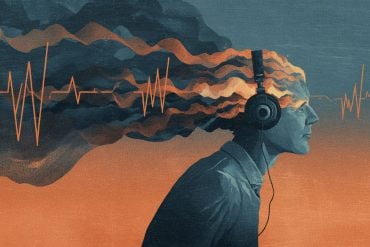Summary: New research reveals that teenage friendships lay crucial foundations for adult wellbeing, with the timing and nature of these friendships playing a pivotal role. Early adolescence social acceptance is linked to better adult mental health, while close friendships in later teens impact job satisfaction and romantic stability.
Teenagers who felt accepted by peers reported lower anxiety, less aggression, and better physical health in adulthood. Researchers emphasize that a teen’s self-perception of social acceptance often predicts their long-term wellbeing. This study highlights the importance of supporting teens through social challenges to boost resilience and future success.
Key Facts:
- Early social acceptance: Teens’ perception of peer acceptance predicts adult mental health.
- Close friendships: Strong friendships in later teens lead to better adult relationships.
- Long-term impact: Teens who feel accepted experience lower adult anxiety and aggression.
Source: Frontiers
Being a teenager is hard, confusing — and crucially important. Scientists studying teenage socializing have found that teenaged friendships could lay essential foundations for wellbeing in later life, and that not just the kinds of friendships teenagers experience but the timing of those friendships is critical.
“A teen’s perception of how broadly socially accepted they are by their peers in early adolescence is particularly influential in predicting adult wellbeing,” said Emily Shah of the University of Arkansas, first author of the article in Frontiers in Developmental Psychology.

“Conversely, in late adolescence, the quality of their more intimate close friendships is more influential for predicting adult wellbeing.”
Coming of age
Our relationships with other people affect how we feel about ourselves, how we function in society, and our psychological wellbeing; that in turn affects our physical wellbeing. This is especially true in our teenage years, when we start to rely on our peers’ support, and when puberty puts our bodies under strain.
Relationships can also help manage the stressful transitions teenagers deal with, from exams to new jobs to leaving home.
“Friendships during the teenage years provide youth with one of their first forays into intimate consensual relationships,” said Dr David Szwedo of James Madison University, corresponding author.
“Because friends may come and go, friendships are a context in which teens must develop skills to maintain and grow the friendship or risk its loss. These skills are likely to be subsequently helpful for forming future friendships and longer-term romantic relationships.”
The researchers recruited 184 participants attending an American middle school. They surveyed these students at ages 13-14, then again at ages 17-18, measuring the quality of their close friendships, their perceived social acceptance, and their likability as reported by their peers.
Finally, the researchers caught up with these teenagers as adults aged 28-30 to ask them about their physical and mental health, job satisfaction, romantic insecurity, and experience of aggression.
Friendships are teenagers’ foundations
Overall, the researchers found that perceived social acceptance was the best predictor of adult wellbeing. When contacted as adults, teenagers who thought their peers liked them reported lower levels of social anxiety and aggression, better physical health, professional and romantic satisfaction, and feeling more socially connected.
However, likability as reported by teenagers’ peers did not predict any facet of adult wellbeing well — possibly suggesting that a teenager’s own perception of their social success is particularly important.
However, when the authors examined the two stages of adolescence separately, adult wellbeing was best predicted by social acceptance for young teenagers and close friendships for older teenagers. Close friendships predicted lower social anxiety and romantic insecurity and higher job satisfaction.
The difference between the two stages of adolescence also suggests that timing is critical. While self-perception of success could stop younger teenagers developing social anxiety, and contribute to preventing stress-linked poorer health, lower levels of social acceptance in later teenage years didn’t predict health outcomes.
You aren’t alone
The authors cautioned that, although the longitudinal design allowed them to track how wellbeing changed over time, it meant that the participants weren’t in school during the Covid-19 pandemic, which could significantly impact teenagers’ social experiences and their future wellbeing. Additionally, the study was largely based on self-reported measures; future research might complement these with observational measures.
“I want teens to know that they aren’t alone,” said Shah. “It’s not easy being a teenager in this world, and I choose to believe that teens are doing the best that they can with the skills that they have. I hope that adults who interact with teenagers consider sharing that perspective, to hold space for empathy and compassion.”
“It’s always helpful to keep in mind that studies such as this point to things that happen on average, and that things could be different for any individual child or teenager,” observed Szwedo.
“This study reinforces the importance of caregivers being aware of their children’s social lives by talking to their kids, talking to their teachers, and knowing who they are talking to online. It’s helpful for parents to not only ask about who their teens’ friends are, but also how socially accepted they feel.”
About this neurodevelopment and psychology research news
Author: Angharad Brewer Gillham
Source: Frontiers
Contact: Angharad Brewer Gillham – Frontiers
Image: The image is credited to Neuroscience News
Original Research: Open access.
“Adolescent Close Friendships, Self-Perceived Social Acceptance, and Peer-Rated Likeability as Predictors of Well-Being in Young Adulthood” by Emily Shah et al. Frontiers in Developmental Psychology
Abstract
Adolescent Close Friendships, Self-Perceived Social Acceptance, and Peer-Rated Likeability as Predictors of Well-Being in Young Adulthood
Introduction: Links between interpersonal relationships and physical and psychological functioning have been well-established in the literature. During adolescence, success or distress in peer relationships may have distinct effects on different aspects of wellbeing.
The present study aims to examine the ways in which different adolescent peer relationship contexts (i.e., close friendship quality, social acceptance, and likability from peers) can predict outcomes relevant to adult wellbeing (i.e., social anxiety, depression, aggression, social integration, romantic insecurity, job satisfaction, and physical health).
Further, the study considers how different developmental stages of adolescence may impact links between peer relationships and wellbeing outcomes.
Method: Peer relationship contexts were assessed in early (ages 13–14) and late (ages 17–18) adolescence. Markers of wellbeing were measured in young adulthood (ages 28–30). A path analysis was used to examine whether the developmental timing of adolescent peer relationship contexts could predict wellbeing in young adulthood.
Results: Results suggest that, across adolescence, broader perceived social acceptance may be a more robust predictor of adult wellbeing compared to close friendship quality and peer likability. When examined at early and late adolescence separately, early adolescent social acceptance and late adolescent close friendship quality best predicted outcomes of adult wellbeing.
Discussion: Implications and considerations for future research are discussed.






